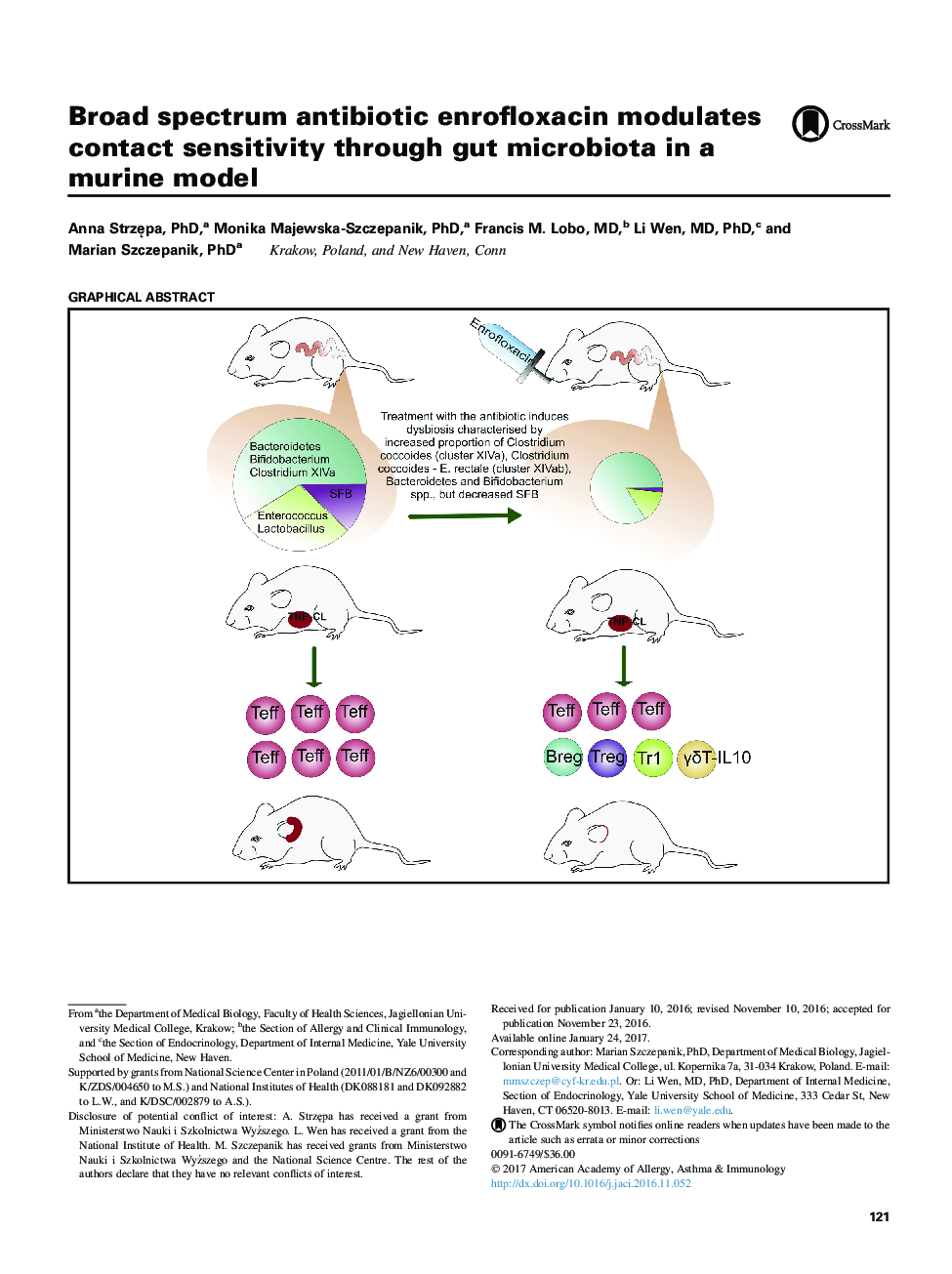| کد مقاله | کد نشریه | سال انتشار | مقاله انگلیسی | نسخه تمام متن |
|---|---|---|---|---|
| 5646467 | 1407065 | 2017 | 16 صفحه PDF | دانلود رایگان |
BackgroundMedical advances in the field of infection therapy have led to an increasing use of antibiotics, which, apart from eliminating pathogens, also partially eliminate naturally existing commensal bacteria. It has become increasingly clear that less exposure to microbiota early in life may contribute to the observed rise in “immune-mediated” diseases, including autoimmunity and allergy.ObjectiveWe sought to test whether the change of gut microbiota with the broad spectrum antibiotic enrofloxacin will modulate contact sensitivity (CS) in mice.MethodsNatural gut microbiota were modified by oral treatment with enrofloxacin prior to sensitization with trinitrophenyl chloride followed by CS testing. Finally, adoptive cell transfers were performed to characterize the regulatory cells that are induced by microbiota modification.ResultsOral treatment with enrofloxacin suppresses CS and production of anti-trinitrophenyl chloride IgG1 antibodies. Adoptive transfer experiments show that antibiotic administration favors induction of regulatory cells that suppress CS. Flow cytometry and adoptive transfer of purified cells show that antibiotic-induced suppression of CS is mediated by TCR αβ+CD4+CD25+FoxP3+ Treg, CD19+B220+CD5+ IL-10+, IL-10+ Tr1, and IL-10+ TCR γδ+ cells. Treatment with the antibiotic induces dysbiosis characterized by increased proportion of Clostridium coccoides (cluster XIVa), C coccoides-Eubacterium rectale (cluster XIVab), Bacteroidetes, and Bifidobacterium spp, but decreased segmented filamentous bacteria. Transfer of antibiotic-modified gut microbiota inhibits CS, but this response can be restored through oral transfer of control gut bacteria to antibiotic-treated animals.ConclusionsOral treatment with a broad spectrum antibiotic modifies gut microbiota composition and promotes anti-inflammatory response, suggesting that manipulation of gut microbiota can be a powerful tool to modulate the course of CS.
225
Journal: Journal of Allergy and Clinical Immunology - Volume 140, Issue 1, July 2017, Pages 121-133.e3
